Amazing Petunia Companion Plants That Will Make Your Garden Pop
Amazing Petunia Companion Plants That Will Make Your Garden POP
Petunias are a popular choice for gardeners because they are easy to care for and come in a wide variety of colors. But did you know that you can make your petunias even more stunning by planting them with companion plants?
Companion planting is the practice of planting different types of plants together for their mutual benefit. When you choose the right companion plants for your petunias, you can improve their health, increase their blooms, and deter pests.
In this blog post, we will discuss some of the best companion plants for petunias. We will also provide tips on how to plant and care for these plants together.
Benefits of Companion Planting
There are many benefits to companion planting, including:
- Improved plant health: Companion plants can help to protect each other from pests and diseases. For example, marigolds can help to repel nematodes, which are a common pest of petunias.
- Increased blooms: Companion plants can also help to increase the number of blooms on petunias. For example, geraniums can help to attract pollinators, which help to pollinate petunias and encourage them to bloom more.
- Deterrent to pests: Companion plants can also help to deter pests from petunias. For example, mint can help to repel mosquitoes and other insects.
- Attract beneficial insects: Companion plants can also attract beneficial insects, such as ladybugs and lacewings, which help to control pests.
- Create a more visually appealing garden: Companion planting can also create a more visually appealing garden by adding variety in color, texture, and height.
Best Companion Plants for Petunias
There are many different companion plants that you can choose from, but some of the best include:
- Geraniums: Geraniums are a good choice for companion plants because they have similar growing conditions as petunias. They also attract pollinators, which help to pollinate petunias and encourage them to bloom more.
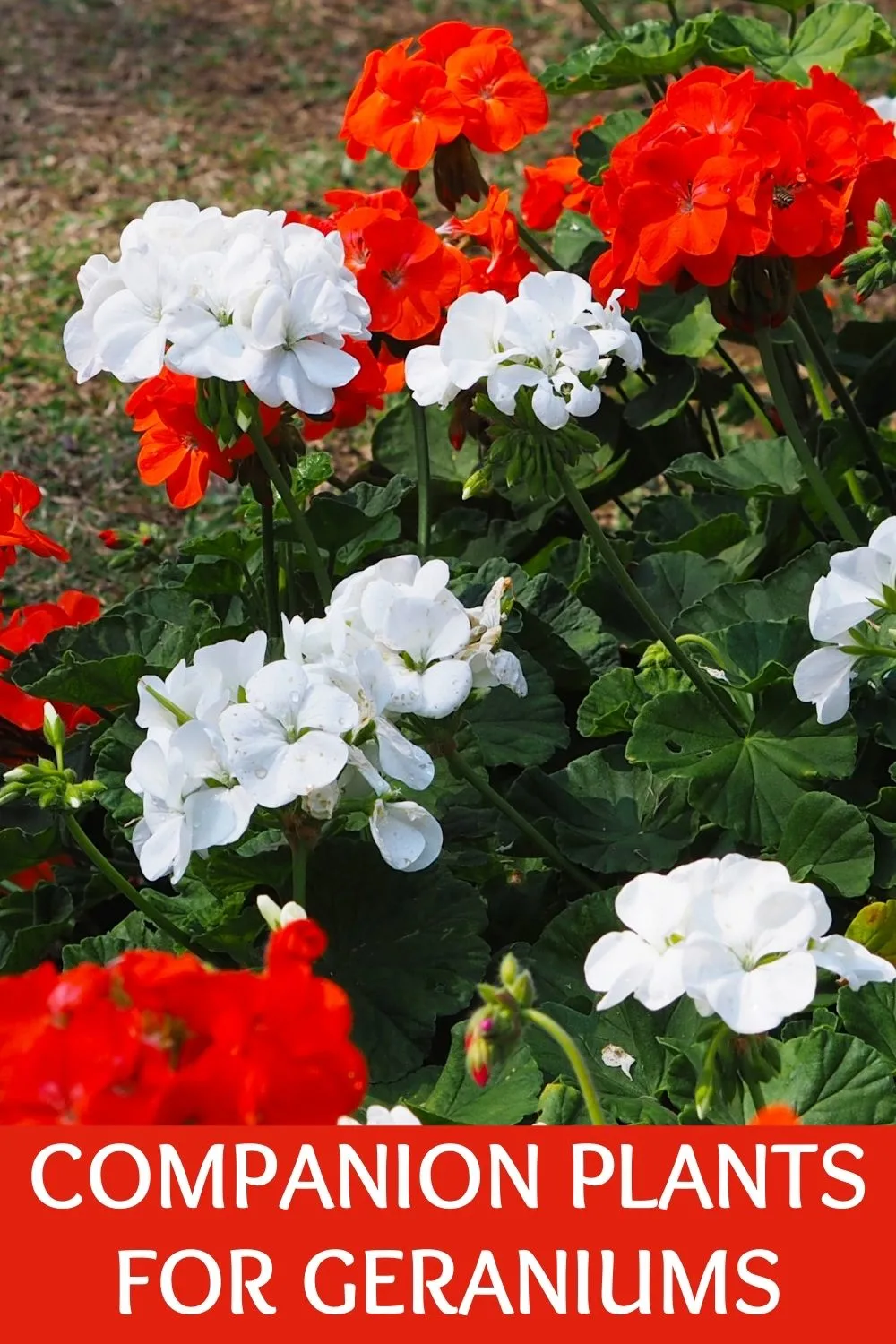
- Marigolds: Marigolds are another good choice for companion plants because they help to repel nematodes, which are a common pest of petunias. They also add a splash of color to your garden.
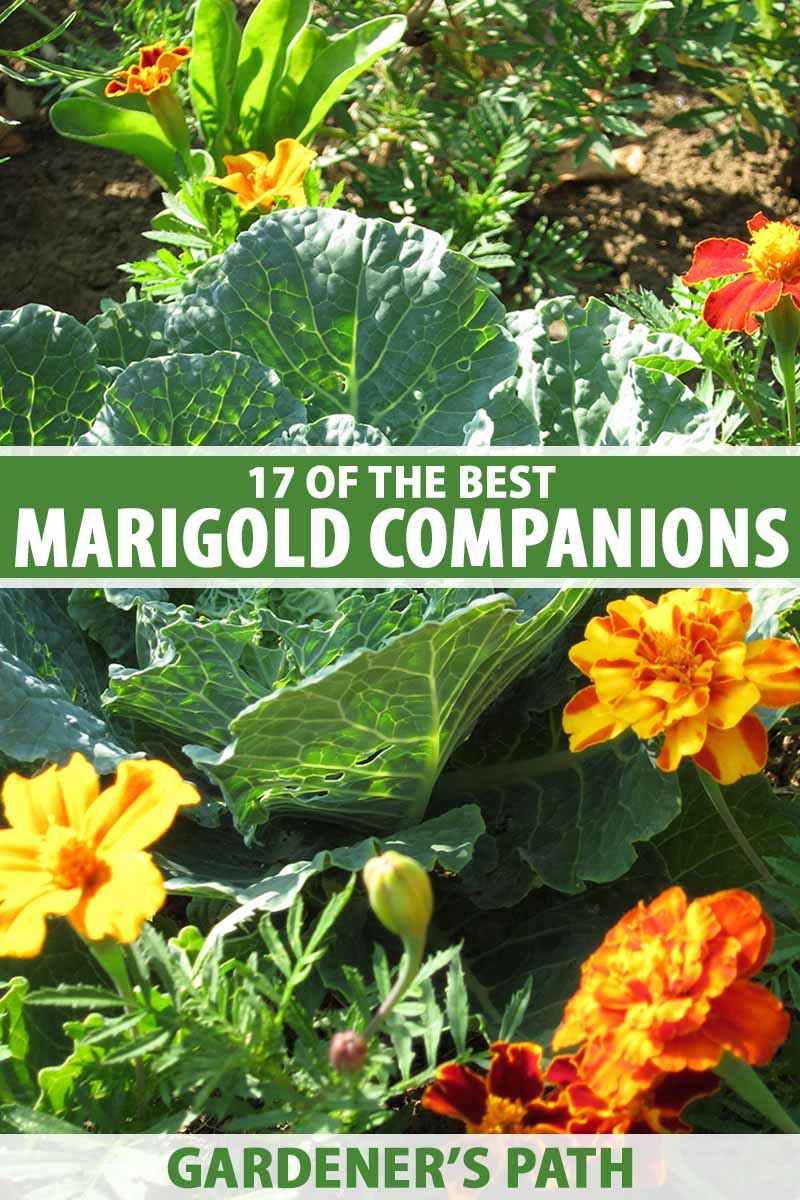
- Lavender: Lavender is a fragrant herb that can help to deter mosquitoes and other insects from your garden. It also adds a touch of elegance to your garden.
- Cosmos: Cosmos are easy-to-grow annuals that come in a variety of colors. They add height and interest to your garden, and they also attract pollinators.
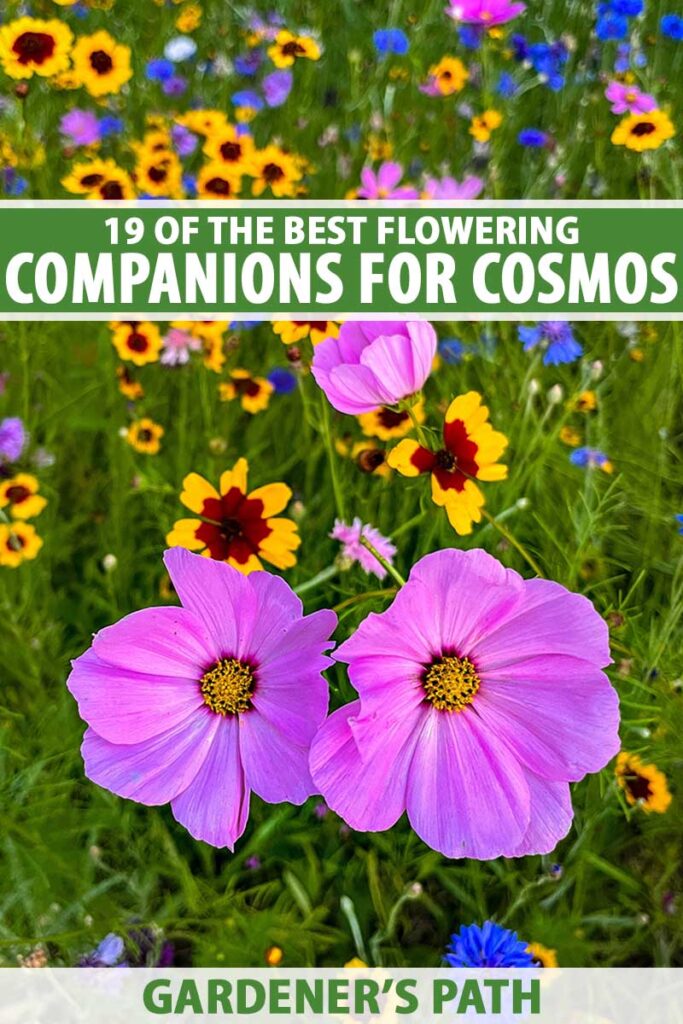
- Salvia: Salvia is a tall, spiky plant that adds vertical interest to your garden. It also attracts pollinators and helps to deter pests.

- Verbena: Verbena is a low-growing plant that spreads quickly. It comes in a variety of colors and adds a splash of color to your garden. It also attracts pollinators.
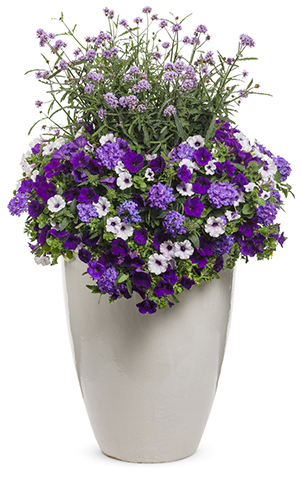
- Ornamental grasses: Ornamental grasses add texture and movement to your garden. They also help to deter pests.
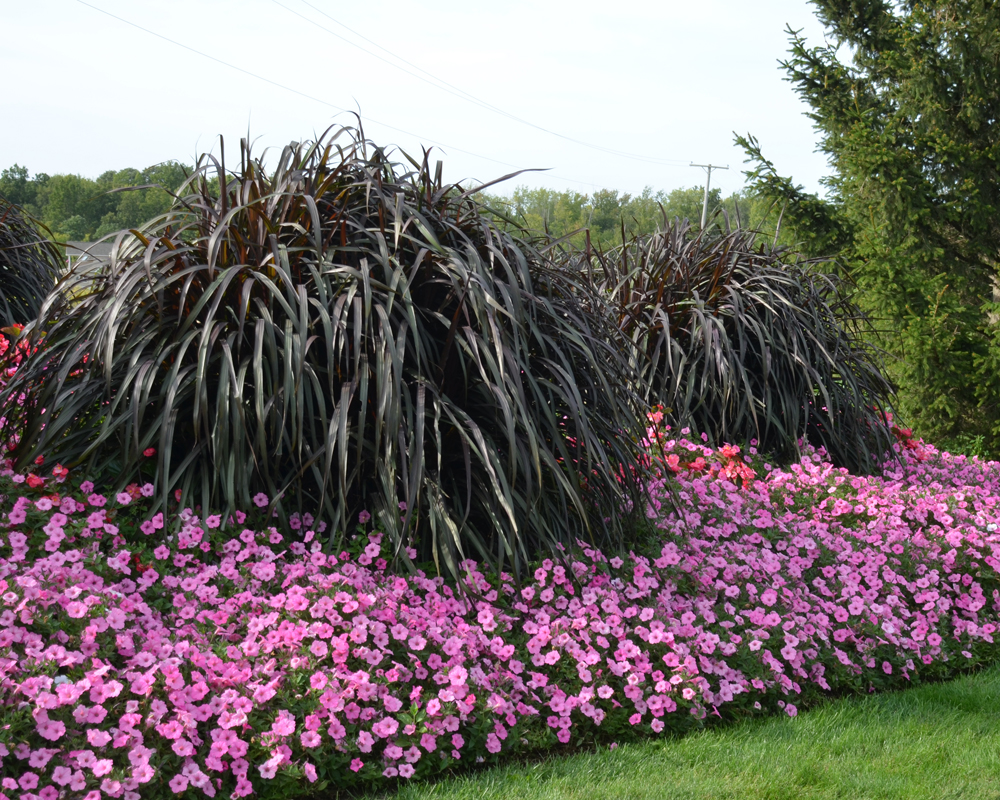
- Dusty Miller: Dusty Miller is a low-growing plant with silvery-green foliage. It adds contrast to the bright colors of petunias and helps to deter pests.
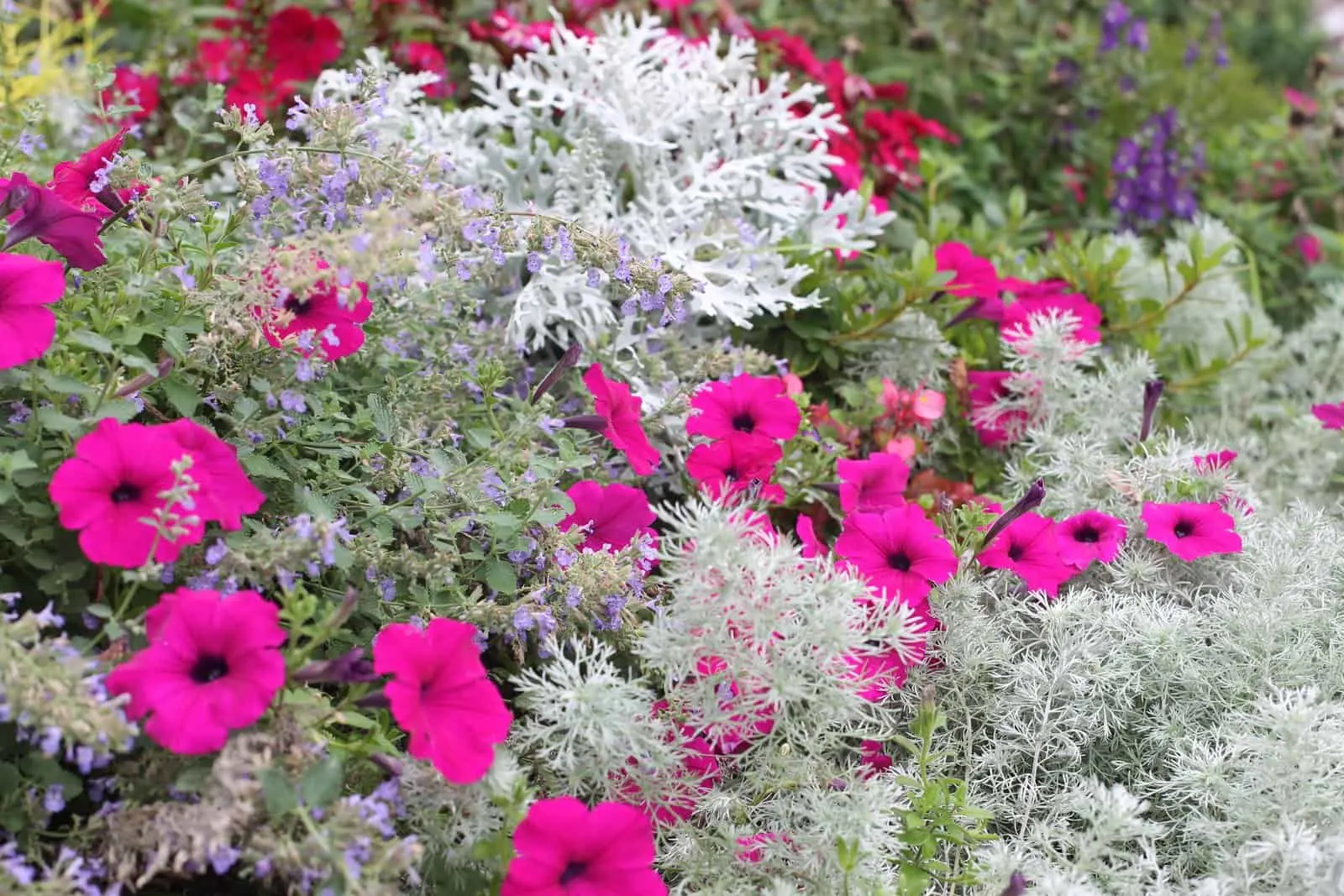
Planting and Care Tips
When planting petunias with companion plants, it is important to choose plants that have similar growing conditions. You should also plant them in a location that receives full sun.
Once your plants are in the ground, water them regularly and fertilize them every few weeks. You should also deadhead spent blooms to encourage new growth.
With proper care, your petunias and their companion plants will thrive and create a beautiful and vibrant garden.
Petunias are a popular choice for gardens and containers because they are easy to care for and come in a wide variety of colors. But did you know that companion planting with petunias can help them thrive even more?
Companion planting is the practice of planting different types of plants together to benefit each other. Some good companion plants for petunias include:
- Salvia: Salvia attracts pollinators, which help to pollinate petunias and produce more flowers.
- Snapdragons: Snapdragons have similar growing requirements to petunias and can help to fill in gaps in a planting.
- Lantana: Lantana is a tropical plant that can help to add color and interest to a garden. It also deters pests, such as aphids and whiteflies.
- African daisy: African daisies have daisy-like flowers that bloom all summer long. They are drought-tolerant and can help to add some texture to a planting.
For more information about petunia companion plants, visit Gardenia Inspiration. You can also find tips on how to plant and care for petunias, as well as photos of different companion planting combinations.
FAQ of petunia companion plants
- What are companion plants?
Companion plants are plants that are grown together in the same area for their mutual benefit. They can help each other by attracting beneficial insects, deterring pests, or providing support.
- Are petunias good companion plants?
Yes, petunias are good companion plants for a variety of other plants. They are relatively pest- and disease-resistant, and they can help to attract beneficial insects such as butterflies and bees. They also tolerate a wide range of soil conditions and light levels.
- What are some good companion plants for petunias?
Some good companion plants for petunias include:
- Marigolds: Marigolds help to repel pests such as aphids and whiteflies.
- Zinnias: Zinnias have similar growing requirements to petunias and can help to fill in empty spaces in a flower bed.
- Geraniums: Geraniums can help to deter nematodes, which are small worms that can damage plant roots.
- Impatiens: Impatiens are shade-tolerant plants that can help to fill in areas where petunias may not thrive.
- Salvias: Salvias attract beneficial insects and can help to deter pests.
- How far apart should petunias be planted?
Petunias should be planted about 12 inches apart. This will give them enough space to grow and spread.
- How much water do petunias need?
Petunias need about 1 inch of water per week. They should be watered deeply, but not too often. Overwatering can lead to root rot.
Post a Comment for " Amazing Petunia Companion Plants That Will Make Your Garden Pop"